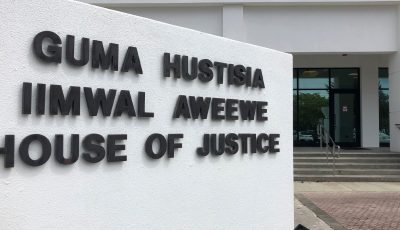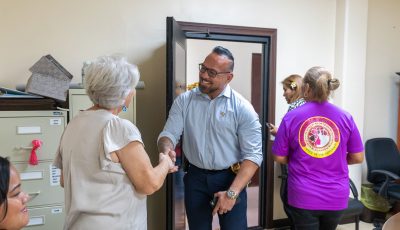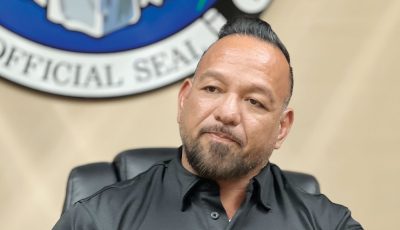Manglona issues show cause order vs Patrick Calvo
The federal court on Friday directed convicted child molester Patrick M. Calvo to explain why his petition that challenged his allegedly unlawful imprisonment should not be dismissed for lack of prosecution.
In her order to show cause, U.S. District Court for the NMI Chief Judge Ramona V. Manglona gave Calvo until Feb. 2, 2018, to reply why his petition for a writ of habeas corpus should not be dismissed without prejudice.
Dismissal without prejudice means Calvo may re-file the case in the future.
Manglona said Calvo filed the petition that challenged his imprisonment sentence on April 6, 2016. Under federal rules, he was required to serve summons on Department of Corrections official Georgia M. Cabrera within 90 days of filing the petition. To date, Calvo has not done so, Manglona said.
Calvo, through counsel Bruce Berline, filed the petition for a writ of habeas corpus against Cabrera, who was at the time acting DOC commissioner.
Habeas corpus refers to a court order to a prison warden or an institution holding someone in custody to deliver the imprisoned individual to the court.
In September 2009, a Superior Court jury found Calvo guilty of sexually assaulting and abusing a then-13-year-old girl. Calvo was sentenced to eight years in prison.
He appealed, asking the CNMI Supreme Court to reverse his conviction and set a new trial.
In July 2014, the high court upheld Calvo’s conviction. The justices, however, ordered the Superior Court to redo the sentencing because it imposed probation, restitution, and community service without suspending some of Calvo’s prison term.
At the resentencing hearing in September 2016, Superior Court Presiding Judge Robert Naraja handed down a seven-year prison term on Calvo.
Calvo’s prison term is considered commenced as of May 25, 2010. His release date was May 25, 2017. After completing the prison term, Calvo was placed on probation for seven years.
In Calvo’s petition for habeas corpus, his lawyer argued, among other things, that the Commonwealth’s integration into the U.S. political and judicial system clearly establishes that the Sixth Amendment jury trial right is a fundamental constitutional right in the Commonwealth.
Berline said that denying Calvo this right is contrary to or is an unreasonable application of Sixth Amendment jurisprudence.



























